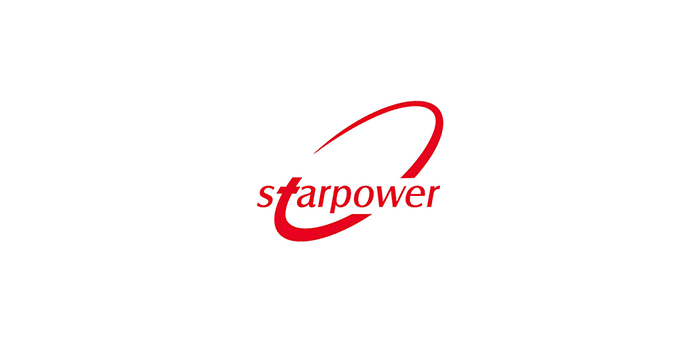
© Florial Mueller
Electronics Production |
Implications for Apple's cases against HTC and Motorola
Even before an avalanche of patent infringement suits against Android came down, Apple and Nokia already started to fight each other in court and in front of the US International Trade Commission (USITC, or simply ITC), whom they both asked to ban imports of their respective rival's core products into the US market.
Yesterday, different news agencies including Bloomberg, Reuters and the IDG News Service reported that the ITC's staff is so far unconvinced of Apple's allegations that Nokia infringes some of its patents. Here's a quote from the IDG story: 'In the memorandum, which was written Oct. 27 but made public Tuesday, the ITC staff argued that, "the evidence will not establish a violation ... as to any of the asserted patents'.
According to Bloomberg, the judge hearing the case 'is scheduled to release his findings in February". He doesn't have an obligation to adopt the staff's position, and "[h]is ruling is subject to review by the six-member commission, which is scheduled to complete the investigation by June'.
Even though those procedural steps remain, this analysis by the ITC staff ups the ante considerably for Apple. But the reports I have seen so far don't put this case into perspective. It's only one of two ITC investigations into Apple's infringement assertions against Nokia. That fact also limits its impact on Apple's cases against HTC and Motorola over Android.
Apple's complaint against Nokia hit a fork in the road
After its ITC complaint against Nokia in mid January, Apple also lodged one against HTC in early March. The two complaints involved a total of 14 different patents, and five of those are listed in both complaints.
Nokia and HTC asked for full consolidation of those two cases. Apple opposed any consolidation, arguing that this would cause complications and delays.
On April 26, the ITC decided in favor of partial consolidation: the five common patents were taken out of the original Apple v. Nokia case (337-TA-704) and Nokia now has to defend itself against them alongside HTC in the original Apple vs. HTC case (337-TA-710). That case includes five other patents asserted against only HTC, not Nokia.
That fork in the road must be considered when assessing the impact of the ITC staff's findings. The reports I mentioned further above relate only to the remainder of the Apple v. Nokia case: the four patents Apple asserts against Nokia but not against HTC before the ITC. However, three of those four patents also play a role in Apple's disputes with HTC and Motorola in the United States District Court for the District of Delaware. So let's take a closer look.
Implications for Delaware cases (Apple v. HTC, Motorola v. Apple)
The first of the four patents on whose validity and alleged infringement the ITC staff commented is US Patent No. 5,379,431. It teaches a "boot framework architecture for dynamic staged initial program load". The application was filed in 1993 by Taligent, an operating system project started within Apple that later became an Apple-IBM joint venture. Taligent was dissolved in the late 1990s and Apple acquired some or maybe even all of its patents in the process.
This particular patent doesn't play a role in Apple's disputes with HTC and Motorola, and based on my initial analysis its validity or potential infringement is a separate issue from the validity or potential infringement of US Patent No. 5,379,430, a patent on an "object-oriented system locator system" that was just asserted by Apple against Motorola in the US District Court for the Western District of Wisconsin. While those patents have consecutive numbers and were both obtained by Taligent, the documents state different inventors and appear to be only loosely connected in substantive terms.
US Patents No. 5,455,599 (another Taligent patent) and No.6,424,354 (obtained by Object Technology Licensing Corporation, apparently an Apple subsidiary) were described by me as "general graphical UI (GUI) patents not even specific to smartphones" in a categorized overview of patents-in-suit against Android I recently published. Apple is suing HTC over them in Delaware since 2 March 2010.
On 8 October 2010, Motorola filed a suit in the same court against Apple seeking a declaratory judgment of non-infringement relating to 12 Apple patents. That was a pre-emptive strike, with Motorola probably assuming at the time that an Apple suit against it was imminent (indeed, Apple sued Motorola over six other patents only weeks later, on 29 October 2010), taking those issues to court proactively. If Apple refuses to accept Motorola's claim that those patents are invalid (and if valid, then not infringed), then the Delaware dispute between the two will evolve into an actual infringement suit. I believe Apple will fight back soon.
Finally, the ITC staff's report also relates to US Patent No.5,920,726 on a "system and method for managing power conditions within a digital camera device". Apple holds that patent against HTC in Delaware but so far not against Motorola, nor has Motorola sought declaratory judgment concerning that power management invention.
Conclusions
The ITC staff's report is a significant setback for Apple but far from a fatal blow since it relates to only 4 out of dozens of different patents Apple is currently asserting against Nokia, HTC and Motorola in a handful of fora. Those four patents don't include what might be Apple's most powerful weapon against Android: its multi-touch patents.
Concerning the four patents on which the ITC staff has commented, Apple now faces an uphill battle at the ITC. If it can't convince the judge that the ITC staff erred, then it's probably a foregone conclusion that Apple will lose that part of its ITC complaint against Nokia.
In the event that the ITC finally rules in accordance with the staff recommendations released this week, Apple still has five other patents in play against Nokia before the ITC, and has suits going on against Nokia in regular courts (in the US and even in the United Kingdom).
Whatever is found in a fast-track ITC procedure does not bind regular courts at all. So Apple might lose over a given patent before the ITC but later prevail in a US district court nevertheless over that same patent. Having previously lost in the ITC wouldn't make things easier, but the decisions are independent.
Assuming that both the ITC and other courts reach the same conclusion as the ITC staff concerning those four patents in connection with Nokia, that still doesn't necessarily mean that HTC and Motorola don't infringe them with their Android-based products, considering that there are fundamental technological differences between the products in question. (If a patent or a relevant claim of a patent is found invalid, then that of course means no one can infringe it, and the ITC staff appears to have concerns over the validity of some of those claims.)
Even if those four patents are invalid or valid but not infringed by HTC and Motorola, Apple would still have 24 different patents in play against those companies (some of them against both rivals simultaneously): 6 against HTC before the ITC; 8 against HTC in Delaware; 6 against Motorola in the Western District of Wisconsin; and 10 against Motorola in Delaware if Apple makes (as I venture to predict) counterclaims against Motorola's request for declaratory judgment.
In those other disputes, the likely crown jewels of Apple's smartphone patent portfolio will play a key role.
So regardless of the ITC staff's recent findings, Apple very likely remains capable of materially adversely affecting Android's future with its patents. Also, Apple is just one of a host of patent holders claiming that Android infringes their rights. Suits have also been filed by Oracle, Microsoft, Gemalto and SmartPhone Technologies to name four examples. The Android patent mess hasn't changed to any significant extent with the ITC staff report released on 2 November 2010.
-----
Author: Florian Mueller; More information can be found on his blog.


